Your cart is currently empty!
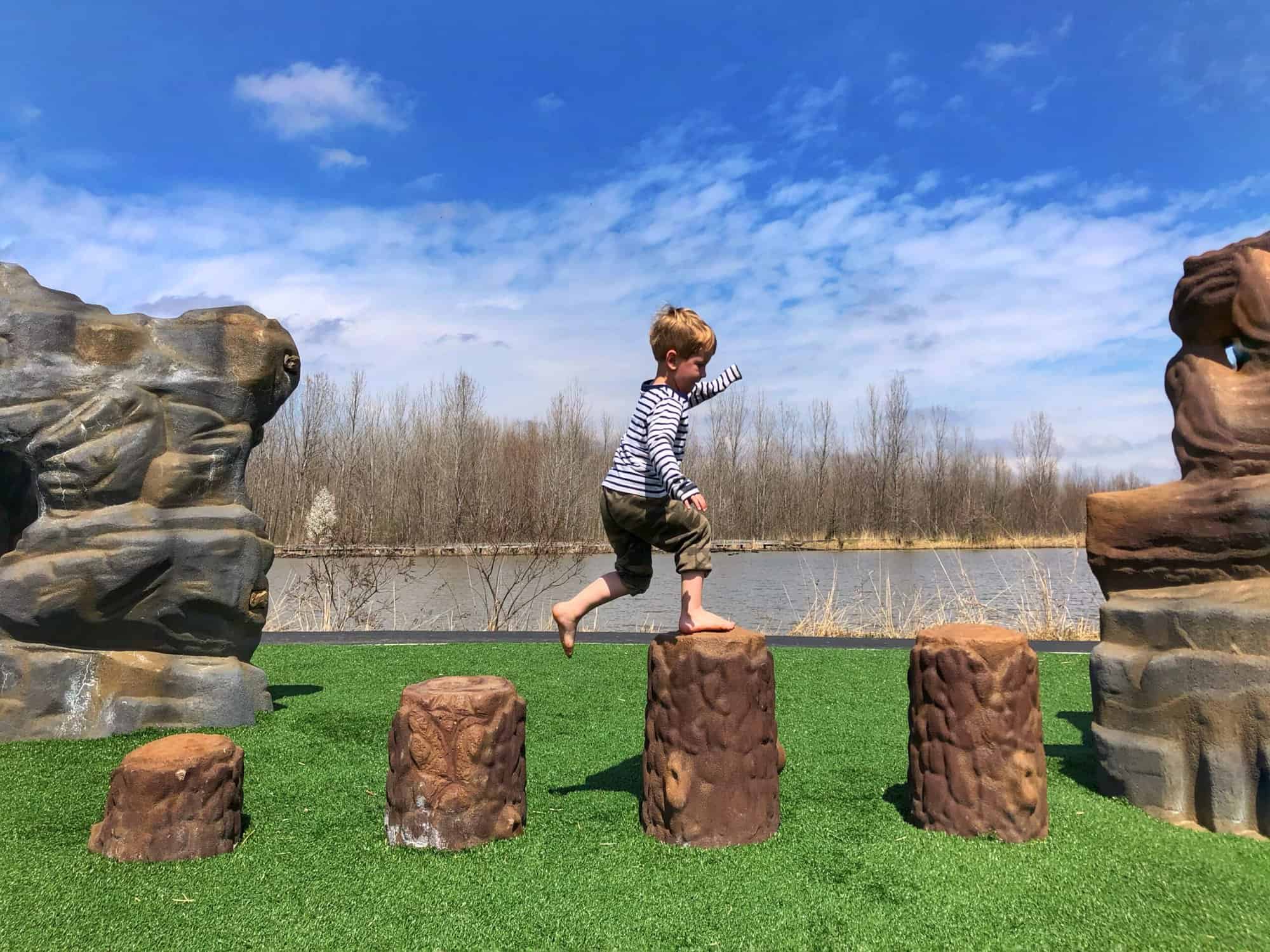
How to Raise Independent Kids
Raising independent kids is one of the greatest gifts we can give as parents. As our kids grow, fostering self-reliance, problem-solving skills, and resilience becomes crucial in helping them confidently navigate life’s challenges. Independence isn’t just about being self-sufficient—it’s about building kids who feel capable and empowered, knowing they can tackle whatever comes their way. Today, Jen Barnes, a mom of three teens, shares her insights and tips on how to raise kids who are independent, resilient, and ready to face the world on their own terms.

Raising independent kids
As moms, we all have big hopes and dreams for our kids. From the moment they enter this world, we are faced with endless exciting possibilities for our kids. Who will they be? What will they do? What kind of traits will they have?
Some of these things can be influenced by parents, and others…not so much. Sometimes, one of the hardest parts of parenting is figuring out what you can control and trying to let go of what you can’t.
I’m not a parenting expert, but I have been parenting for over 20 years. I am in the ” release ” stage as my kids leave the nest, and it’s been a little easier to know that I have raised independent kids who are ready to fly on their own.

Why raise independent kids
It was important to me to raise kids who could be launched into adulthood with confidence and security. Independence was high on my priority list for traits that I wanted my kids to possess. Some kids are born independent, but it’s also something that can be helped along (or hindered) by parenting.
Most of my parenting wins have come on the heels of failures and mishaps. I’ve learned a lot of this through my own trials and errors. Hopefully, I can help you learn through my trial process and mitigate some of the errors.
This article is a combination of both why raising independent kids matters and how to do that. We’ll delve into the reasons why instilling independence in our children is crucial and practical ways in which moms can actively contribute to this transformative journey.

Raising independent kids takes time
Raising independent kids is a long-game strategy that requires you to first make decisions about why to raise independent kids. Believe it or not, this is not what everyone desires.
There are parents who thrive on their kids’ dependence and reliance on them. These parents find their identity in what they are doing (and can do) for their kids, rather than empowering their kids to do things on their own. Oftentimes, this comes from a place of fear or control.
But, empowering your children to do things on their own and be self-reliant doesn’t mean your kids won’t need you anymore. Rather, it allows kids to form connections based on mutual respect and support rather than relying solely on parents for every need.
As mothers, I believe our role extends beyond providing love and care; it involves fostering the development of resilient, independent individuals who can confidently stride into the complexities of life and adulthood. Because, after all, kids grow up.
If independence is something you want to instill in your child, it’s never too early to start. Every small step you take will set a building block for the next phase.

Why independence matters
There are many benefits of raising an independent child. Independent kids possess a strong sense of self, problem-solving skills, reduced dependency, and improved confidence to explore and learn from the world around them. Let’s explore each of these concepts in more detail.
Problem-solving skills
Kids who are gaining independence have enhanced problem-solving skills. Independent children often learn to think critically as they encounter various scenarios on their own. When faced with challenges that they must solve on their own, they are more likely to analyze the situation, consider different perspectives, and weigh possible solutions.
As parents, it’s our responsibility to help create an environment of critical thinking by giving kids real-world opportunities to problem-solve on their own. We must occasionally step back, hand them the reigns, and let them figure things out. This is how they gain confidence and move toward independence.
Think back and remember how you felt when you accomplished something for the first time. It’s euphoric and memorable. When you take away these opportunities from your child, you are taking away growth. Kids need personal accomplishments in order for their self-esteem and confidence to build and grow. The earlier you give your kids the space to do things on their own, the earlier they begin to grow their self-worth. And even if they fail (which they’re bound to do), they’ll learn valuable lessons.
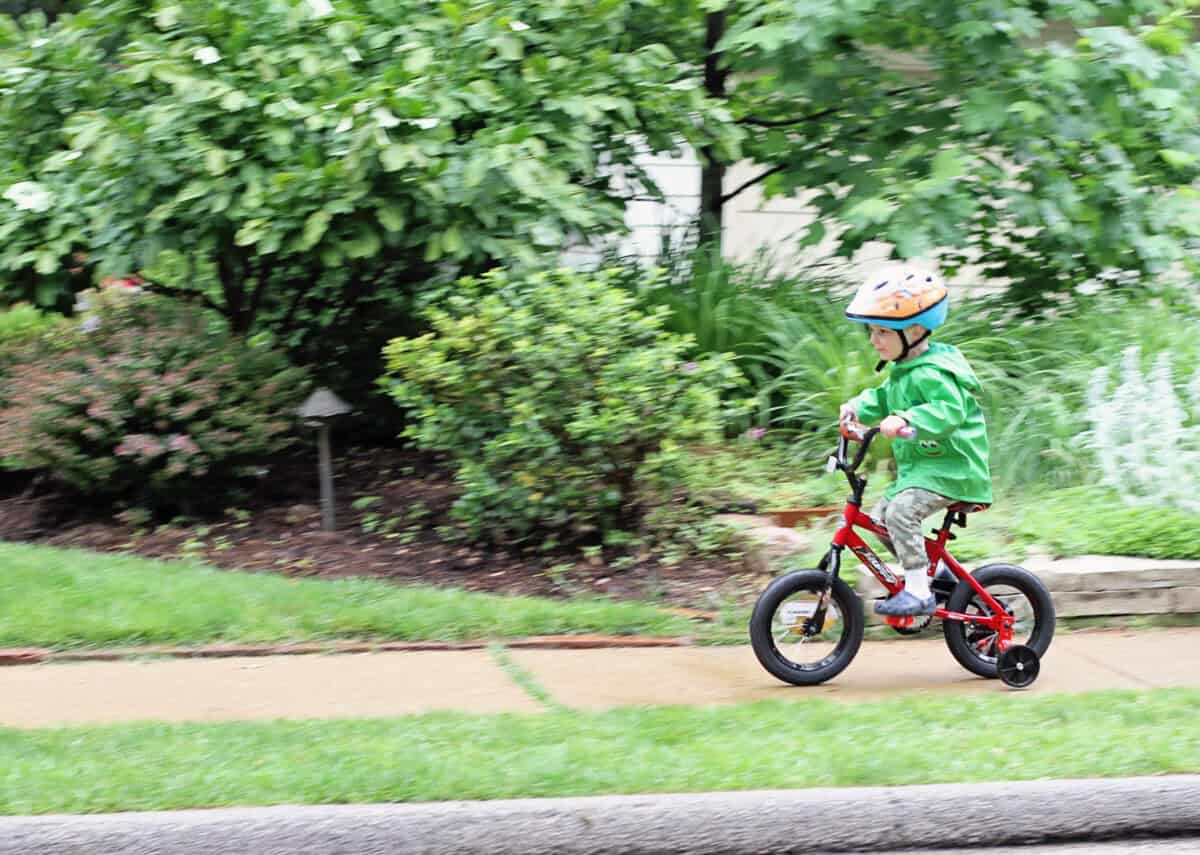
Confidence & self-esteem
Kids who are gaining independence have more confidence and improved self-esteem. When kids are encouraged to be independent, they develop confidence in their decision-making abilities and trust in themselves. Whether it’s riding their bike home from school or scaling a climbing wall, they experience a sense of achievement.
Accomplishments boost their self-esteem as they recognize their capabilities and feel proud of themselves. When they have the freedom to make choices, express themselves, and pursue their interests, they feel empowered and valued. This confidence becomes a foundation, as they trust their judgment and are more willing to take calculated risks when seeking solutions.
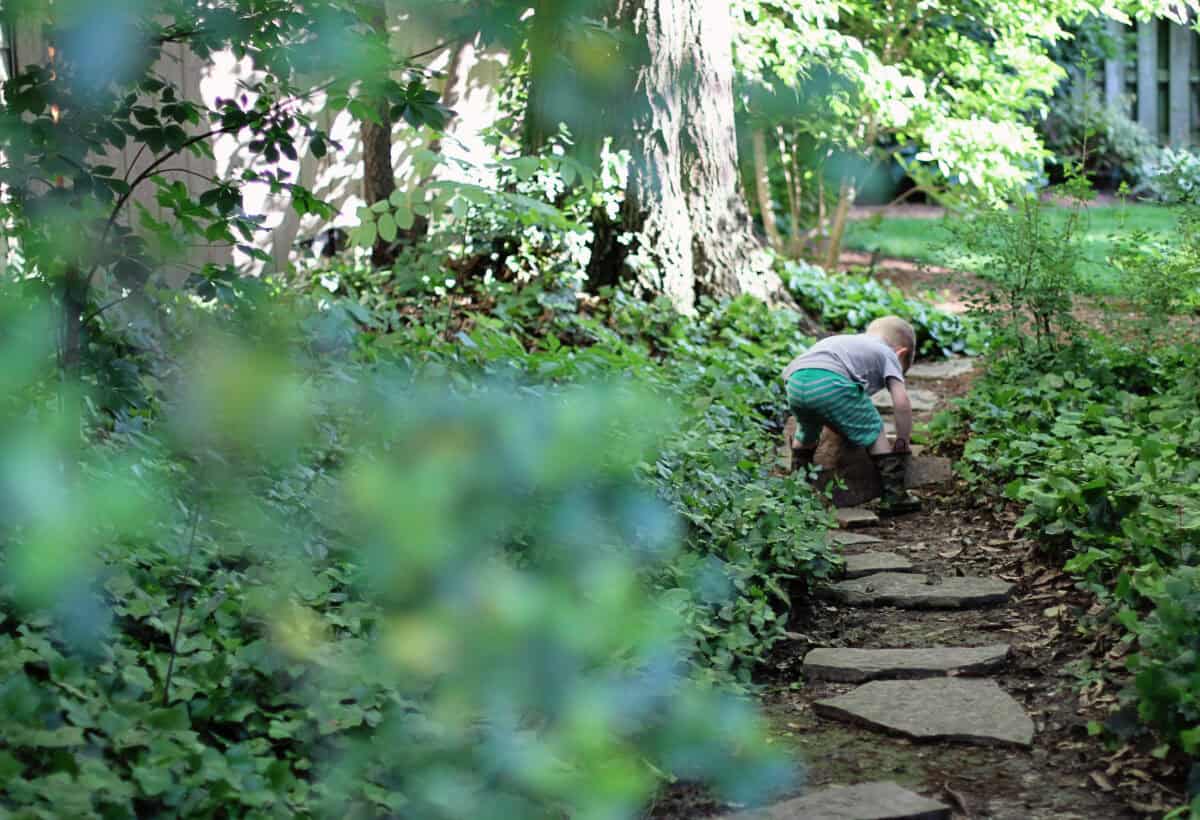
Reduced dependency
Reduced dependency on parents means that kids are becoming capable of managing their lives, making decisions, and taking responsibility for their actions. When our kids are little, they rely on us for everything. But as they grow, it’s our job to raise kids that can begin to take care of themselves. This preparation is essential for a smooth transition into adulthood.
While our kids will always need us, reduced dependency on mom and dad leads to better family dynamics. Lessening the parental burden makes for improved relationships as kids grow up. Less conflict and more communication is better for everyone in the family.
Again, this is a long-term strategy and happens gradually over time. But, every time you allow (encourage) your kids to do something on their own, you are building skills, independence, and confidence.
How to raise independent kids
Raising independent kids takes intentionality and time. It’s cultivated over years, and reinforced again and again through experiences.
Start with demonstrations and lessons for the skills you’d like your child to learn. Then, take a step back, let them make decisions, and then give the child space and opportunity to accomplish tasks independently, making bigger and more important decisions as they get older.
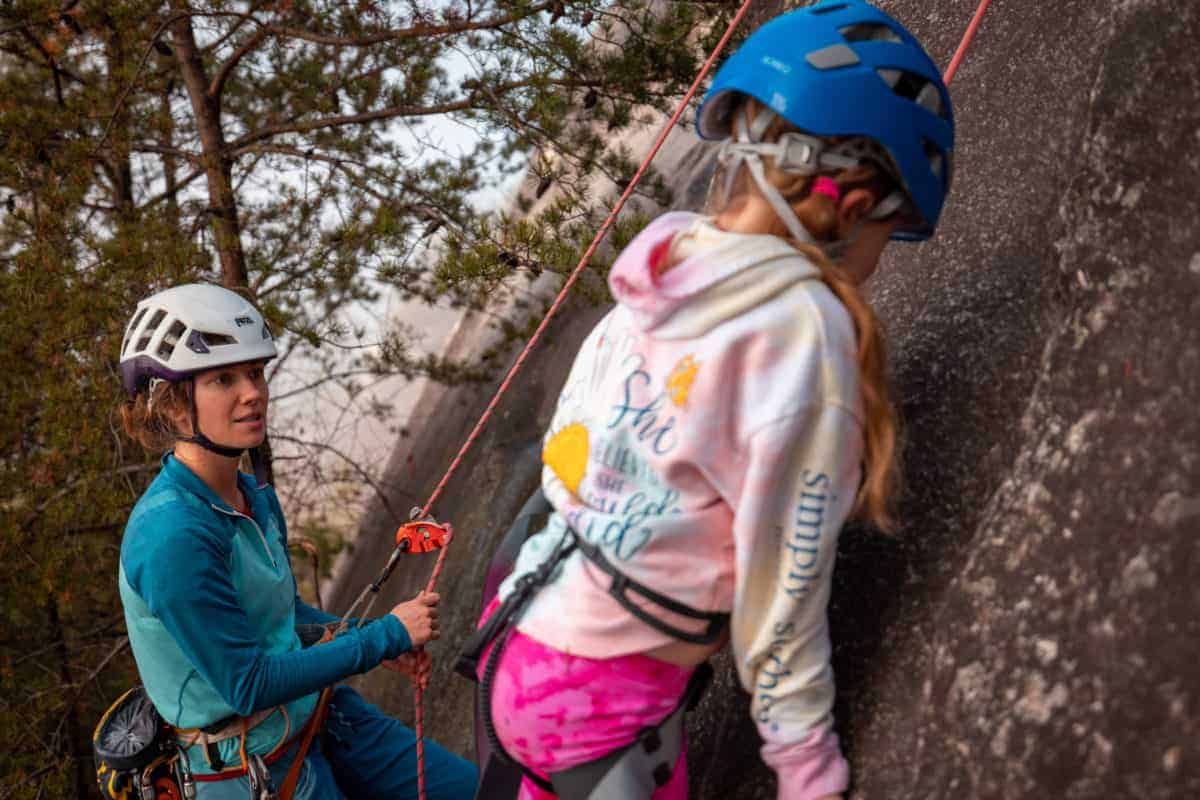
Teach & demonstrate
As parents it can be challenging to be intentional about demonstrating skills and teaching lessons. It’s tempting to do things for your child, to maintain control. Yes, you can do it faster and better. But, I promise that the time you spend slowing down and teaching skills now will give you time back later tenfold. It’s an investment.
Demonstrating the behavior or skill you want your child to learn and showing them how it’s done can be powerful. Visual learning experiences are often more effective than verbal instructions. Working alongside your child and providing step-by-step guidance allows them to observe, ask questions, and actively participate in the learning process while still receiving support and feedback.
Coach through the process
It’s natural for kids to look to their parents before making a decision, and for a lot of things, it’s completely warranted. However, if your kids are still looking to you about a decision they should be able to make on their own, take a step back, remind them that they are capable of making decisions on their own, and empower them to act independently.
Here is a scenario for an early elementary-age child: your child wants a snack and asks you to get it for her. Instead of obliging, give her a snack choice (e.g., crackers or an apple). This reinforces appropriate snack options and encourages decision-making. Once she makes a choice, encourage her to act independently and get the snack herself. Start by asking her where the apples are and continue to ask questions that walk her through the steps of getting her own snack. “Do you need to wash the apple before you eat it? Where’s the apple slicer?” All this will lead to a future time when she realizes she’s hungry, wants a snack, chooses an apple, and gets it for herself independently.

Age-appropriate choices
When you give your child choices, you’re actually encouraging independence and autonomy while building confidence through decision-making.
You can do this even with very young kids. Decide which choices you are okay with and begin to offer those options to your child. For toddlers and early elementary-aged kids, use a “this or that” approach, such as, “Would you like to play at the park or take a walk in the neighborhood?” This gives your child decision-making power within your pre-approved boundaries.
By the time your child gets to middle school, you need to increase the choices. “What instrument do you want to try for orchestra?” is a low-risk choice, but it still leaves the door open for a variety. Once your child has made a choice, they will need to take ownership. Bigger decisions mean bigger responsibilities. The choices grow as your child grows.
In high school, your kids can make choices about classes to take and friends to spend time with. Hopefully, by this time, your child has learned how to approach problem-solving independently through years of making decisions. Encourage them to think critically, analyze situations, and come up with solutions. Offer guidance when needed but allow them the opportunity to choose their path. However, if your child is in danger or making poor choices without remorse, you will need to retract some of that decision-making power and potentially reteach until there is trust and maturity.

Increase responsibility
Along with increasing opportunities for choices, you will also increase age-related chores and tasks. I don’t care how busy your kids are with extracurricular activities, sports, or even a job. The responsibilities inside the family unit are crucial.
Kids learn they have a part and a purpose inside their family unit when they accomplish tasks in and around the home for the benefit of the family. They learn that people are counting on them to do their part and the importance of being dependable.
How to let them fail
Teaching time management usually happens under fire, and lessons are learned the hard way. Assignments go missing, uniforms aren’t washed, and garbage cans aren’t rolled to the curb. Natural consequences can be a great teacher, and letting your kids learn the hard way is important. Repress the urge to rescue your kids from consequences. If you want your kids to grow in their independence, then you need to let them fail.
Allow your kids to make mistakes and embrace failure as a learning opportunity. Everyone makes mistakes, but the earlier our kids make them, the earlier they learn from them. What an incredible thing for our kids to fail while under our protection. We are there to make sure they know they are still loved and can help them get up and try again.
If you don’t allow your kids to fail, they can’t grow. This is a hard lesson to learn as a parent. No one wants to watch their kids fail or suffer. The small setbacks at a young age will inform them so the setbacks at an older age aren’t so risky or consequential.

Goal setting & guidance
Encouraging goal setting helps kids to get excited about accomplishing their own things, in their own ways, on their own time. When kids get a say in their pursuits, amazing things can happen. When you encourage them to take ownership of their life, kids become more confident to move toward independence. When it’s their goal, they are motivated to achieve it independently.
Work toward providing guidance for your kids, not solutions. The older kids get, the more you can press into asking questions to get them thinking, instead of lecturing or just giving them the answer. If a child makes a mistake, instead of scolding them about the right way to do it, try asking them what they would do differently. Give guidance, but don’t tell your kid what to do or how to do it. Don’t even make a suggestion! Just ask more questions. Cheer them on and continue to encourage them to keep trying.
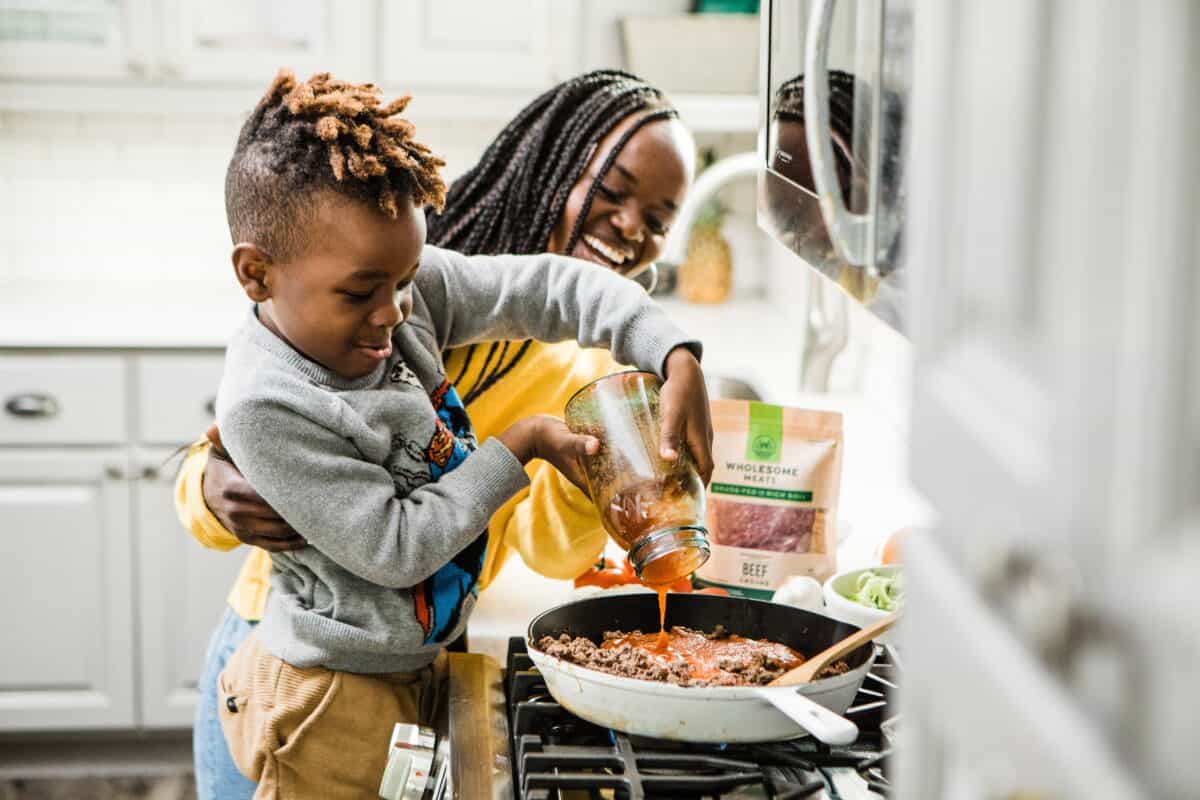
Overcoming parental judgment
Let’s get vulnerable here. One of the most challenging (and surprising) things about raising independent kids will be judgment from other parents. That may seem ludicrous, but you will find that even your best friends may disagree with how you raise independent kids.
Some parents do not like this. They let their own fear limit exposure to independence, risk-taking, and decision-making. The media and scary headlines have led many parents to let fear dictate decisions all in the name of safety. While safety is a natural concern for parents, moving your kids toward independence doesn’t make you an unsafe parent.
It doesn’t mean you’re not worried about safety or let them take unhealthy or unnecessary risks. In fact, it’s the opposite. As your kids gain independence, they gain confidence in situations (or avoid situations) that test their safety. If they are never given the opportunity to make safe choices and decisions, they will not know how to approach a potentially unsafe situation.
When this happens, share your perspective on the importance of fostering independence with other parents and explain how it contributes to your child’s development. However, recognize that different parents have different comfort levels and parenting philosophies. Often, I have to remind myself that I can respect their choices while asserting my right to make decisions that align with my values and not let their judgment affect my parenting style.
Conclusion
The journey towards raising self-reliant individuals is a long, deliberate, and thoughtful process, one that requires dedication, patience, and an understanding of the impact our efforts can have. It involves leading by example, providing a supportive environment, allowing them the space to learn, make decisions, fail, and try again. By instilling independence in our kids, we are raising individuals who are well-prepared to embrace the opportunities and uncertainties that await them.

About the author
Jen has been married to her original adventure partner, John, for 20 years. She is a mama to 3 teenagers who, although they have busy and independent lives, love to adventure in the outdoors when they can. Jen is a native of Chicago, but has lived in South Carolina for two decades and calls it home. She’s always planning the next adventure for herself or her friends, whether near or far. Hiking, kayaking, sailing with her family, or traveling the world is all about the experience and the journey. Her extroverted nature keeps her talking and smiling with anyone she meets along the way. She’s on a mission to show other busy families that traveling with teenagers is possible and fun!
You can find Jen online in the following locations:
Instagram: @gofamilyadventure
Website: Go Family Adventure
RWMC Posts: Jen Barnes

Leave a Reply